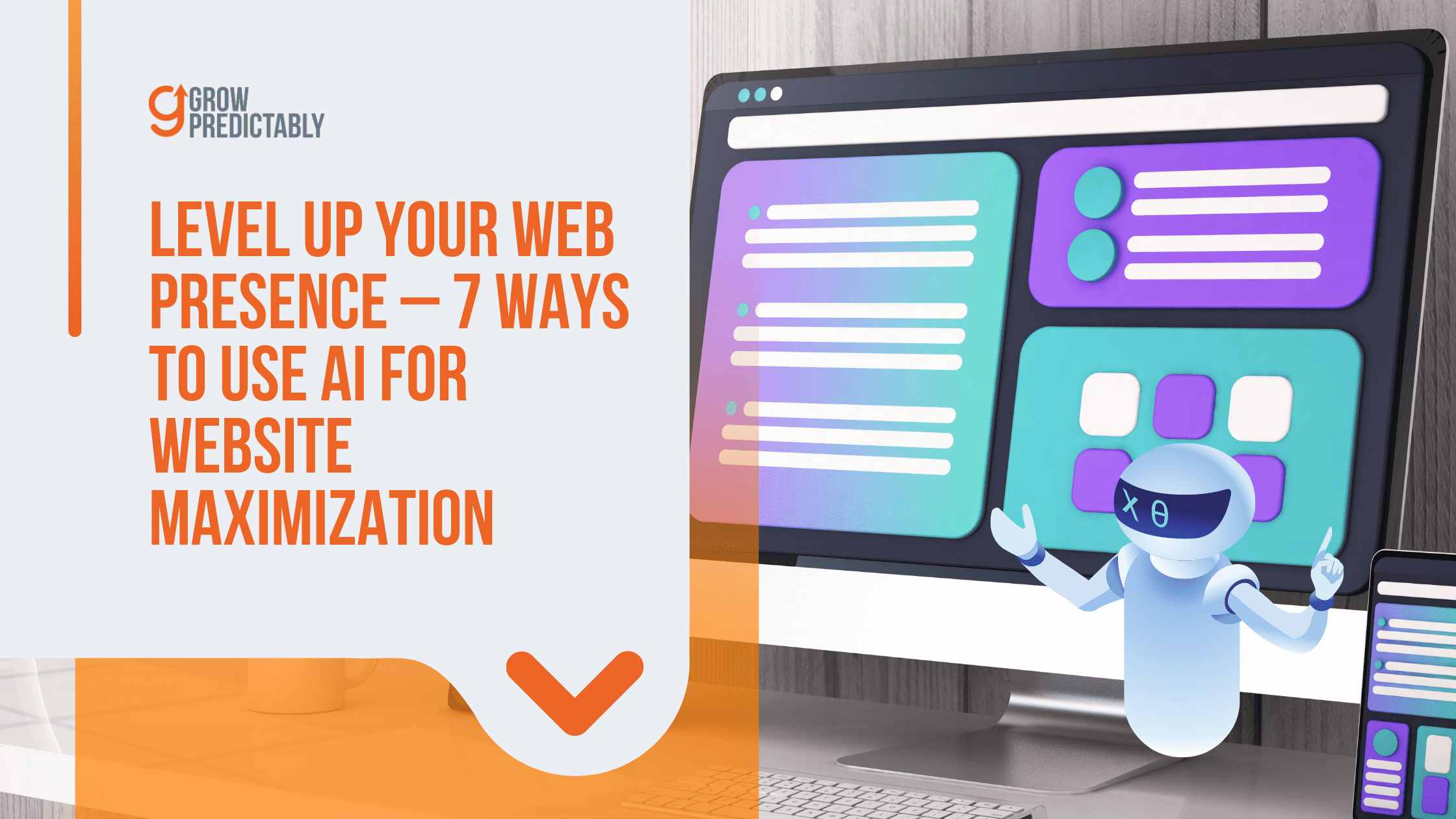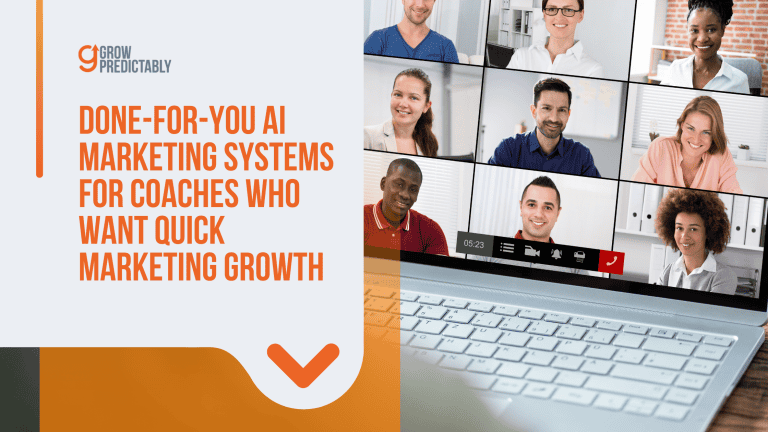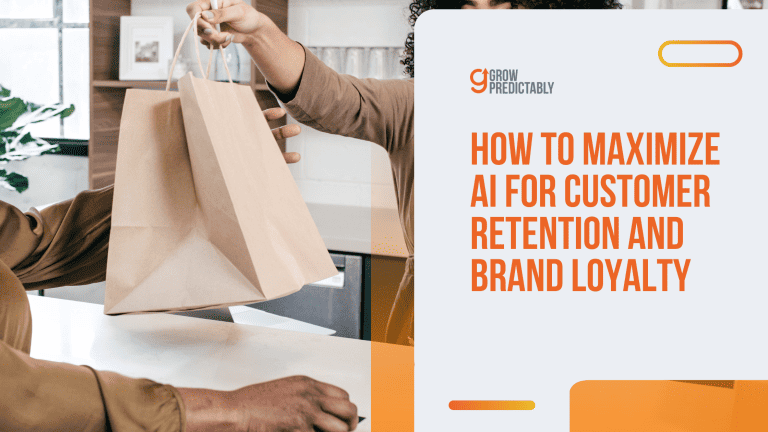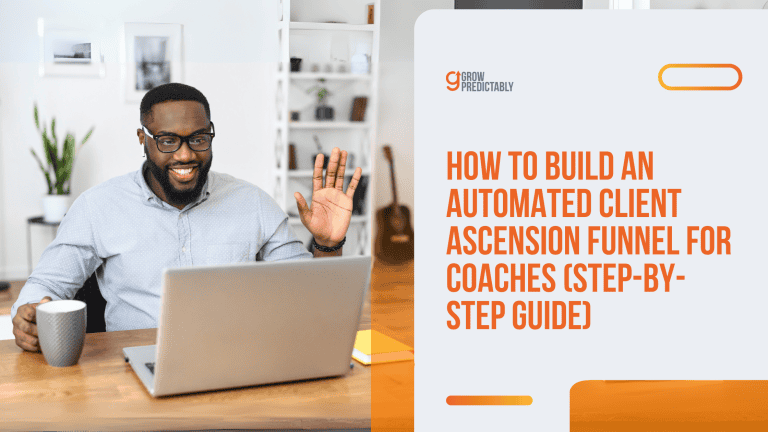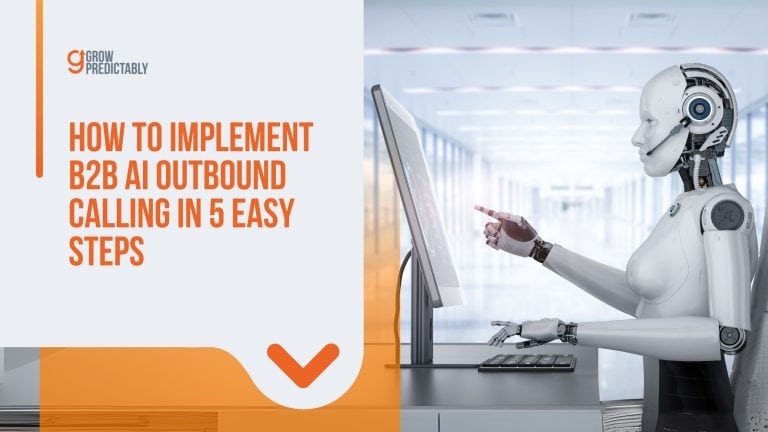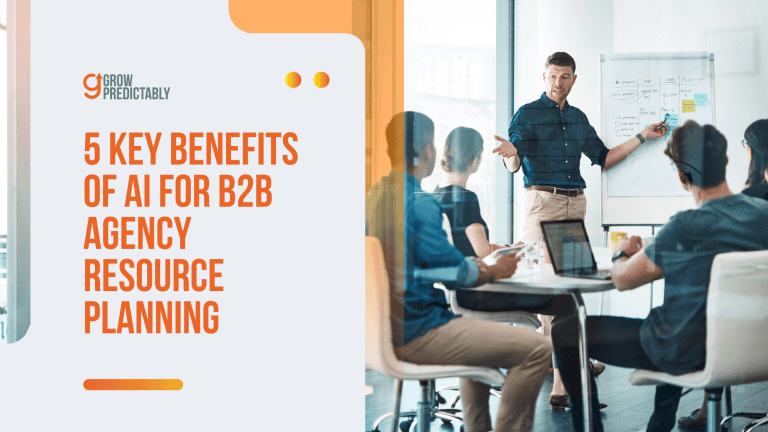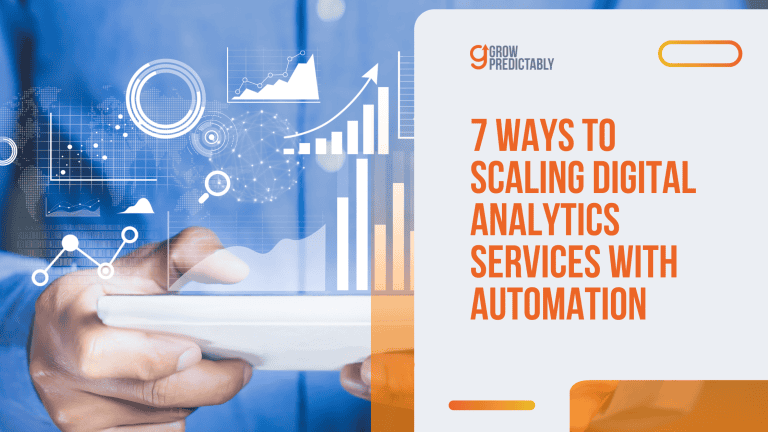Level Up Your Web Presence – 7 Ways to Use AI for Website Maximization
You know that nagging feeling after wrapping up a solid workday – the inkling that maybe, just maybe, something extra could have been squeezed out of those hours?
In a similar vein, any business website can potentially do the heavy lifting when it comes to engaging customers and creating a bottom-line impact.
Let’s picture your website, not just as a digital business card but rather like a good friend of yours.
It’s got a job, it’s making a living, but hey, could it be pulling a bit more weight?
Could it handle customer queries more efficiently? Or streamline the shopping process for your customers?
In short, could it be working harder for you?
Let’s not kid ourselves – we all want to get the maximum.
The good news is there’s a pal you might not have turned to yet – Artificial intelligence.
Just a minute, don’t let your eyes glaze over.
No high-tech mumbo-jumbo here, I promise!
Bottom line: AI can offer practical advantages to businesses of all sizes.
So, let’s see how AI for website optimization could make a difference for you because who doesn’t love making life a little easier?
How Important Is Your Website?
Let’s cut to the chase: your website is a big deal.
Businesses need solid online footprints anchored by a stellar website.
Why exactly? It’s pretty simple.
A website is basically your business’s launchpad into the vast digital world.
This isn’t about competing with the corner store anymore; it’s about reaching a far wider audience.
Savvy customers expect a lot from your online presence. If your site doesn’t hit the mark, chances are you’ll see a dip in business.
Research shows that 57% of internet users won’t vouch for businesses with subpar websites.
Having a well-crafted, user-friendly website tells customers you mean business and that their experience matters to you.
Nail this, and you’ve got a killer tool for generating leads.
Here’s a key point: a great company website boosts your credibility. It sets you apart from the pack.
Believe it or not, 75% of consumers judge a business’s trustworthiness based on its website.
That’s huge!
So, the impact of a solid website design on your business success is pretty clear-cut.
This just goes to show how pivotal websites and online presence are in our digital age.
Now, where does AI fit into all this?
7 Ways AI Maximizes Your Website’s Effectiveness
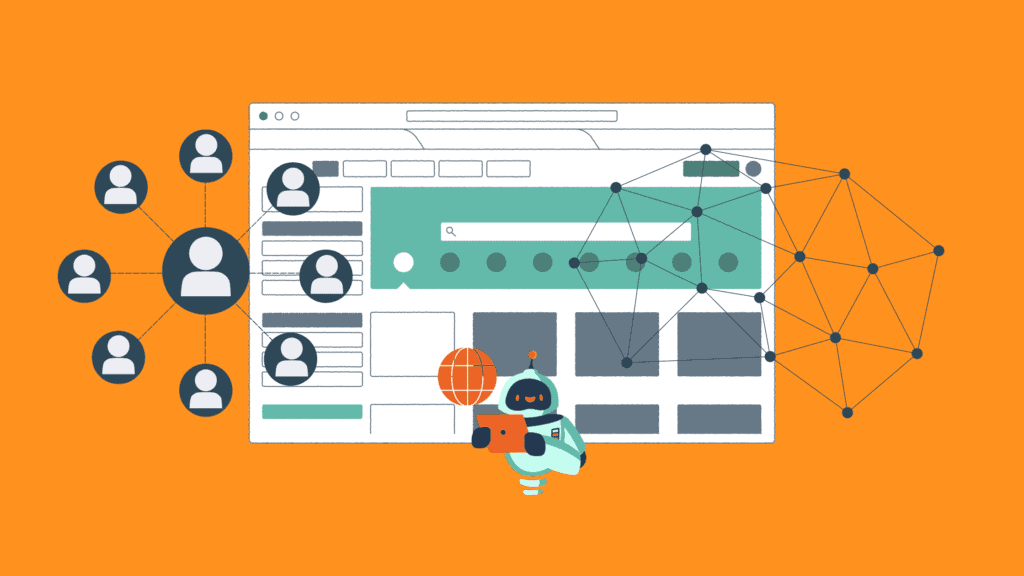
Here’s the exciting part: AI can help your website become a lean, mean customer engagement machine.
So, let’s look at ways to use artificial intelligence for website maximization.
- Website Creation
- Customer Service
- SEO
- Content Creation
- Personalization
- UI/UX
- Accessibility
1. Website Creation
Nowadays, you have AI website builders as an alternative to traditional web experts or hiring someone to do the job.
Have zero coding skills?
That’s okay!
AI website builders handle it all – they pick a template, slot in your content, arrange your site’s navigation and more.
Here’s the scoop. The AI builder takes your content, you pick your settings, and then it gets to work.
It’s pretty straightforward and can potentially save you time and money.
So you might be asking, “What exactly can these AI website builders do?”
Well, they can:
- Suggest design layouts for your web pages.
- Boost your website’s speed and work on its performance.
- Rolling out automated customer support (think chatbots).
- Introduce better search functionality using natural language processing.
- Test and optimize your site for improved user interaction.
- Tweak your content based on user trends.
- Increase your website accessibility for users with disabilities.
Now, keep in mind, not all AI website builders are the same.
Each one comes with its own set of features.
Take a step back and figure out what you want your website to do. Then, you can pick the AI builder that matches your vision.
- Wix
- Kleap
- Jimdo
- 10Web
- Appypie
2. Customer Service
So, there are a bunch of ways you can use AI to ramp up your customer service, and it’s not as complex as you might think, thanks to machine learning!
Let’s look at chatbots, for instance. They’re super quick at handling basic queries, and AI is there to identify and sort out any tricky problems.

ChatGPT, the conversational AI powered by OpenAI’s GPT-3.5 architecture, continues to be incredibly popular and widely used in various applications.
What’s the upshot?
Your online store can offer better customer support options while your staff isn’t racing against the clock dealing with every customer query that lands.

Here’s something else – AI isn’t just great at troubleshooting.
It can strike up a conversation and assist customers who might be having a tough time.
Suppose customers can’t get the hang of a product they bought from your online store. AI can step in and offer some guidance.
The result is that people can make the most out of what they’re buying from you. And chances are, they’ll keep coming back!
- DialogFlow
- Intercom
- MobileMonkey
- Drift
- Tidio
3. SEO
Search Engine Optimization (SEO) refers to enhancing your website ranking to help it stand out on search engines like Google or Bing.
By polishing up your website, you improve its chances of sitting at the top of search engine results.
To help people find your stuff, search engines rely on simple things called “keywords.”
Let’s say you run a pizza joint, and someone searches for “best pizza near me,” that whole sentence becomes your keyword.
By strategically placing these keywords throughout your site, you give your website a kick, boosting its appeal to search engines.
But how do you find these perfect words?
This is where AI comes into play!
It takes a look at your website’s content and figures out which keywords are the most fitting.
The end result? Your website becomes the go-to place for folks online searching for what you offer.
- Surfer SEO
- GrowthBar
- Content Harmony
- MarketMuse
- WriterZen
4. Content Creation
AI and machine learning tools have made content creation much easier.
They can help with all sorts of stuff, like designing websites, making cool images, and crafting everything in between.
Imagine having the perfect look for your brand without breaking a sweat!
Sometimes, AI can even do a better job than the content we create ourselves.
Take AI writing tools, for example – they can write everything from short blurbs to longer articles.
Trust me, it’s like a walk in the park.
ChatGPT also comes in handy. It’s not just for customer support, but it can help writers and content creators too.
Need fresh ideas or some improvements? ChatGPT has got your back, plus it can even whip up complete written pieces.

Oh, and images? AI’s got that covered as well. It can pick just the right photo or design to go with your text.
Say goodbye to spending ages searching for the right fit. It’s that simple!
- ChatGPT – for AI-generated content
- Canva – for AI-generated images
- Jasper – for AI-generated write-ups
- WellSaid – for AI-generated voice/audio
- Grammarly – for AI-generated writing assistance
5. Personalization
So, you’re into content marketing.
You get it– it’s all about making your customer’s experience feel personal and relevant.
You want them to come back, right?
Well, we could all use a little bit of help there. That’s where AI marketing tools come in handy.
AI tools dig into customer behavior and preferences. They help us understand what sort of content really clicks with our users.
With AI’s help, we can tailor-make content for each user and suggest things they’ll genuinely like. It’s all about keeping them hooked and coming back for more.
- Adobe Target
- Segment
- Optimizely
- Otomo
- Sitecore
6. UI/UX
User interface (UI) and user experience (UX) are two jargon we often hear in the digital world, right? They’re pretty important when building a website or app.
UI’s all about how people use your website and UX? It concentrates on what they feel when they do.
Now, you might think it’s tough work to get these two spot-on.
And, yeah, you’re right.
It takes some serious time and thought. But AI can make it a whole lot easier.
How, you ask? Here’s the rundown:
- It can help you choose the best spots for those pesky buttons and links.
- It creates a unique UI for each person – pretty neat, huh?
- It tests different UI styles to find the winner.
- Make predictions about what your users might want, changing the interface accordingly.
- Give your navigation a boost with smart suggestions.
- Helps your website look and work great on any device.
- Can tweak images and text to be clearer and easier to read.
- It even adds voice and gesture controls for an intuitive user experience.
So, if you’re building a website, keep this in mind: it should not only be useful, but also it should make your users feel good. Yes, a happy user is a returning user!
Looking for tools to get this job done? Ask around, and you’ll most likely hear five names every expert keeps in their arsenal.
- Photoshop
- Illustrator
- Adobe Xd
- InVision
- Figma
7. Accessibility
Website design can be tough, especially when you factor in all the different user needs, like those with hearing or visual impairments.
To make marketing really hit the mark using AI, you’ve gotta bear in mind every visitor to your site.
But the neat thing is, AI can really simplify this job.
With some savvy machine learning algorithms, AI could pick out accessibility issues on your site and serve up a friendlier surfing experience for everyone involved.

On top of that, AI can crank out content in different formats to keep it accessible.
Imagine using AI to convert text into human-like audio, helpful for users with hearing impairments.
That’s just one example of how AI can usher in a more accessible web for everyone.
And hey, if you’re on the lookout for top-notch voice generation tech, you’ve got a ton available right there on the web.
- ElevenLabs
- WellSaid
- Revoicer
- Speechify
- LOVO
FAQs
In Summary
So there you have it! Seven practical ways to harness the power of AI to give your website a solid boost.
It’s not about transforming into a tech wizard overnight. It’s more like taking baby steps towards a smarter future.
A future where your website isn’t just a digital placeholder but a dynamic hub that serves your audience better and helps your business grow.
AI isn’t some fancy buzzword that only the big players get to play with,
It’s here, it’s real, and it’s ready to be used by anyone—yes, including you!
You don’t need to know all the nuts and bolts of AI to reap its benefits. With the right tools and a bit of patience, you can start leveling up your web presence today.
And remember, this isn’t a race. You don’t have to implement all these strategies at once.
Start with one or two, see how they work for you, and gradually incorporate more as you get comfortable.
The most important thing is to keep learning, keep experimenting, and keep adapting.
In the end, it’s all about making your website work for you, not the other way around. And with AI on your side, that’s more possible than ever before!

